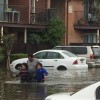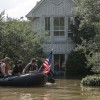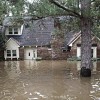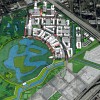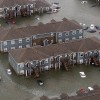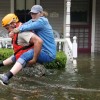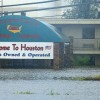15 years after Hurricane Ike, Houston’s communities remain exposed
URBAN EDGE : September 21, 2023
It has been 15 years since Hurricane Ike made landfall on the Gulf Coast and six years since Hurricane Harvey. These two storms had very different impacts on our region and provided different lessons for how we can be better prepared for weather disasters.
When it comes to flood buyouts, distance and race have played outsized roles
URBAN EDGE : June 16, 2023
After Hurricane Ida hit New Orleans in 2021, Kirt Talamo, a fourth-generation Louisianan, decided it was time to go. He sold his flooded home, purchased his grandmother’s former house on New Orleans’ west bank, which hadn’t flooded, and moved in. It felt good to be back within its familiar walls, but his mind was on the future.
Rising flood insurance costs may be another blow to Houston’s affordability
URBAN EDGE : June 11, 2023
Hurricane season is here, and with it comes a familiar feeling of dread in the Greater Houston area, particularly about floods. But more than five years after Hurricane Harvey, Houstonians may be less inclined to buy flood insurance because of cost increases that have begun to roll out in the last year, with the latest data from the Federal Emergency Management Agency showing that prices could go up by 75% in Harris County alone.
While we fix our flood infrastructure, let’s also improve mental health care and strengthen communities
URBAN EDGE : September 12, 2022
Natural disasters are increasingly common each year, affecting infrastructure and contributing to economic, social, health, and psychological hardships. When Hurricane Harvey hit Houston in 2017, it quickly amassed $125 billion in damages, displacing over a million people and their homes. Along with the economic toll of a disaster event, mental health concerns carry a cost that is difficult to measure.
In ‘More City than Water,’ Houston tells its Hurricane Harvey story. Will we listen?
URBAN EDGE : August 25, 2022
Flood survival stories are a Houston shibboleth, a test of membership. Make it through a devastating downpour, and you are one of us. And everyone who lived in the Houston area in August 2017 has a Hurricane Harvey story. For some, it was another entry in a collection of flood stories, depending on how long they lived here and where; for others, it was their first, a rude awakening to very real vulnerabilities.
If it hopes to overcome future Harveys, Houston needs to double down on resilience and planning
URBAN EDGE : August 16, 2022
A new book serves as a guide for how cities can best learn from one another to design systems and build ways to endure the worst climate shocks to come. This includes Houston’s experience—both for what to expect from a changing climate and how to respond. Its authors say Houston has done several things right, but they also worry that future disasters could outpace these efforts.
With new incentives, Harris County hopes to gain buy-in for buyouts
URBAN EDGE : May 25, 2022
Climate change is propelling more extreme weather events, including more precipitation and flooding, which means the need for more strategies such as buyouts has never been more urgent. As a concept, buyouts are fairly straightforward: the government buys up properties to remove them out of harm’s way, reducing the risk of loss of life, the need for future flood repairs, insurance payouts and other costs.
